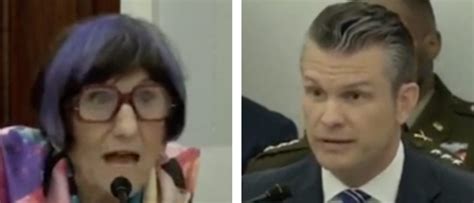
Ohio Senator J.D. Vance is facing criticism after appearing to suggest that a menswear critic, whose online commentary he disliked, should be deported. The remarks, made on X (formerly Twitter), have sparked accusations of abuse of power and raised concerns about the chilling effect on free speech.
Senator J.D. Vance ignited a firestorm of controversy after seemingly implying that a menswear critic, identified as Derek Guy, should be deported due to Guy’s online commentary that Vance evidently found objectionable. The contentious exchange unfolded on X, formerly known as Twitter, and has since escalated into a broader debate concerning the boundaries of free speech, the potential misuse of power by elected officials, and the implications for individuals expressing dissenting opinions.
The incident began when Guy, known for his sartorial critiques and commentary on men’s fashion, posted a series of remarks that apparently drew the ire of Senator Vance. While the specific content of Guy’s initial posts remains a subject of some discussion, it is clear that Vance took exception to them, responding with a message that many interpreted as a veiled threat of deportation.
“Maybe send him back to whatever country he came from,” Vance wrote in response to Guy’s post, as reported by Yahoo News. This remark, laden with ambiguity and potential implications, immediately triggered a wave of criticism directed at the senator.
Critics argue that Vance’s statement can be construed as an abuse of his position as a senator, using the implied power of his office to silence or intimidate a private citizen whose views he dislikes. Many have pointed out the potentially chilling effect such comments could have on free speech, particularly in an environment where online discourse is already fraught with challenges.
The suggestion of deportation, even if intended as a rhetorical flourish, carries significant weight, especially given the current political climate surrounding immigration. It also raises questions about the senator’s understanding of and respect for the rights of individuals to express their opinions, even if those opinions are critical of him or his policies.
The controversy has resonated across various platforms, with commentators, legal experts, and civil rights advocates weighing in on the matter. Some legal analysts have suggested that while Vance’s statement may not constitute a direct legal threat, it could be interpreted as an attempt to exert undue influence and stifle dissent.
The incident also underscores the increasing tensions between elected officials and online commentators, particularly in an era where social media has become a primary battleground for political discourse. As politicians navigate the complexities of online engagement, they face the challenge of balancing their right to respond to criticism with the need to uphold principles of free speech and avoid any appearance of abuse of power.
The debate surrounding Vance’s remarks is likely to continue, with potential ramifications for his political standing and the broader discourse on free speech and the responsibilities of elected officials in the digital age. This incident serves as a stark reminder of the power of words, particularly when spoken by those in positions of authority, and the need for careful consideration of their potential impact on individuals and the public sphere.
Further complicating the matter is the question of Guy’s citizenship status. While some reports initially suggested that Guy may not be a U.S. citizen, subsequent information indicates that he is, in fact, a naturalized citizen. This revelation has added another layer of complexity to the controversy, raising questions about the accuracy of Vance’s initial assumptions and the potential implications of his remarks for naturalized citizens in general.
The incident has also prompted a broader discussion about the role of social media in political discourse and the potential for online platforms to be used as tools for intimidation or harassment. As politicians increasingly rely on social media to communicate with their constituents and engage in public debate, the need for clear guidelines and ethical standards becomes ever more pressing.
Critics have called for Senator Vance to issue a formal apology and clarify his remarks, while others have demanded a more thorough investigation into the matter. The incident has also raised questions about the potential for similar situations to arise in the future, and the need for greater awareness of the potential for abuse of power in the digital age.
The controversy surrounding Senator Vance’s remarks is a complex and multifaceted issue with far-reaching implications for free speech, political discourse, and the responsibilities of elected officials. As the debate continues, it is crucial to examine all aspects of the incident and consider its potential impact on individuals and the public sphere.
In-Depth Analysis and Background Information
The incident involving Senator Vance and Derek Guy highlights a growing concern about the intersection of political power and online speech. In an era where social media platforms have become ubiquitous avenues for public discourse, the actions and statements of elected officials carry significant weight, influencing public opinion and shaping the broader political landscape.
The controversy surrounding Vance’s remarks underscores the importance of upholding principles of free speech and ensuring that individuals are not subjected to intimidation or harassment for expressing their views, particularly when those views are critical of those in power.
The potential for abuse of power is a central theme in this incident. As an elected official, Senator Vance holds a position of considerable authority, and his words and actions are subject to greater scrutiny than those of private citizens. When a senator appears to suggest that a critic should be deported for expressing dissenting opinions, it raises concerns about the potential for that power to be used to silence or intimidate individuals.
The concept of “chilling effect” is also relevant in this context. A chilling effect occurs when individuals are deterred from exercising their rights, such as the right to free speech, due to fear of reprisal or negative consequences. In this case, Vance’s remarks could have a chilling effect on other online commentators, discouraging them from expressing critical opinions about politicians or policies for fear of similar repercussions.
The debate surrounding Vance’s remarks also touches on the complex issue of immigration and citizenship. The suggestion of deportation, even if intended as a rhetorical device, carries significant weight, particularly in the current political climate. It also raises questions about the rights and protections afforded to naturalized citizens, who are entitled to the same rights and freedoms as native-born citizens.
The role of social media in political discourse is another important aspect of this incident. Social media platforms have become increasingly important tools for politicians to communicate with their constituents and engage in public debate. However, these platforms can also be used to spread misinformation, incite hatred, and harass individuals. It is crucial for politicians to use social media responsibly and to avoid engaging in behavior that could be construed as abusive or intimidating.
The controversy surrounding Senator Vance’s remarks serves as a reminder of the importance of holding elected officials accountable for their words and actions. When politicians make statements that appear to threaten or intimidate individuals, it is essential to demand clarification and, if necessary, to take appropriate action to ensure that such behavior is not tolerated.
Expanded Context
The incident between Senator Vance and Derek Guy occurs within a broader context of increasing polarization and political division. In recent years, political discourse has become increasingly hostile, with individuals often resorting to personal attacks and inflammatory rhetoric. This trend has been exacerbated by the rise of social media, which has provided a platform for individuals to spread misinformation and engage in online harassment.
The controversy also highlights the growing tensions between elected officials and the media. In an era of declining trust in traditional media outlets, politicians often turn to social media to communicate directly with their constituents. However, this can also lead to conflicts with journalists and commentators who criticize their policies or actions.
The incident also raises questions about the role of ethics in politics. Elected officials are expected to uphold certain ethical standards and to avoid engaging in behavior that could be construed as abusive or corrupt. When politicians violate these standards, it undermines public trust and erodes confidence in government.
The controversy surrounding Senator Vance’s remarks is likely to have a lasting impact on his political career. The incident has damaged his reputation and raised questions about his judgment and temperament. It could also make it more difficult for him to win future elections.
The incident also serves as a cautionary tale for other politicians. It demonstrates the importance of being mindful of the potential consequences of one’s words and actions, particularly in the age of social media. Politicians who engage in abusive or intimidating behavior risk damaging their reputations and undermining public trust.
The controversy surrounding Senator Vance’s remarks is a complex and multifaceted issue with far-reaching implications for free speech, political discourse, and the responsibilities of elected officials. As the debate continues, it is crucial to examine all aspects of the incident and consider its potential impact on individuals and the public sphere.
The situation also brings into focus the increasing scrutiny public figures face regarding their online conduct. Social media, while a powerful tool for communication, also serves as a permanent record of statements and interactions, making individuals accountable for their digital footprint. This is especially true for politicians, whose words are often dissected and analyzed for their potential impact on policy and public opinion.
The incident also touches upon the broader issue of online harassment and cyberbullying. While the specific nature of Guy’s initial comments is debated, the response from Senator Vance has been characterized by many as disproportionate and potentially intimidating, highlighting the challenges of navigating online interactions in a respectful and responsible manner.
Furthermore, the incident underscores the importance of media literacy and critical thinking. In an era of information overload, it is essential for individuals to be able to distinguish between credible sources and misinformation, and to evaluate the claims and arguments presented by both politicians and commentators.
The controversy surrounding Senator Vance’s remarks is a reminder of the complex and evolving nature of free speech in the digital age. As online platforms continue to shape public discourse, it is crucial to engage in thoughtful and informed discussions about the rights and responsibilities of individuals and elected officials.
The Question of Intent
A key point of contention revolves around Senator Vance’s intent when he made the controversial statement. Was it a genuine suggestion of deportation, or a poorly worded attempt at humor or sarcasm? Without explicit clarification from Vance himself, it is difficult to ascertain his true motivation. However, the impact of his words, regardless of intent, remains a significant concern.
Some argue that even if Vance’s statement was not intended as a literal threat, it still reflects a troubling lack of sensitivity and awareness of the potential consequences of his words. As an elected official, he has a responsibility to be mindful of the impact of his statements on individuals and the broader public.
Others contend that Vance’s remarks were taken out of context and that he was simply expressing frustration with what he perceived as unfair or unwarranted criticism. They argue that he has a right to defend himself against attacks, even if his response was not perfectly worded.
The debate over Vance’s intent underscores the challenges of interpreting online communication, where tone and context can be easily misconstrued. It also highlights the importance of clear and unambiguous language, particularly when spoken by those in positions of authority.
Legal Implications
While it is unlikely that Senator Vance’s remarks would lead to any formal legal charges, some legal experts have suggested that they could potentially be interpreted as a form of intimidation or harassment.
In the United States, it is illegal to threaten or intimidate someone based on their race, religion, national origin, or other protected characteristics. While Vance’s statement did not explicitly mention any of these characteristics, some argue that it could be interpreted as a veiled threat based on Guy’s perceived national origin.
However, proving that Vance intended to threaten or intimidate Guy would be a difficult legal hurdle. To succeed in a legal claim, Guy would need to demonstrate that Vance’s statement was intended to cause him fear or harm, and that it had a reasonable likelihood of doing so.
Even if Vance’s remarks do not meet the legal threshold for intimidation or harassment, they could still have negative consequences for his political career. The incident has already damaged his reputation and could make it more difficult for him to win future elections.
Ethical Considerations
Beyond the legal implications, Senator Vance’s remarks also raise important ethical considerations. Elected officials are expected to uphold certain ethical standards and to avoid engaging in behavior that could be construed as abusive or corrupt.
Some argue that Vance’s statement violated these ethical standards by using his position of power to threaten or intimidate a private citizen. They contend that he has a responsibility to treat all individuals with respect and fairness, regardless of their political views.
Others maintain that Vance was simply exercising his right to defend himself against attacks and that he did not intend to cause any harm. They argue that he should not be held to a higher standard than other individuals who express their opinions online.
The debate over Vance’s ethical obligations highlights the complex challenges of navigating the intersection of politics and social media. As elected officials increasingly rely on online platforms to communicate with their constituents, it is crucial for them to be mindful of the potential consequences of their words and actions.
The Broader Impact on Public Discourse
The controversy surrounding Senator Vance’s remarks has broader implications for public discourse and the climate of political debate. The incident has contributed to the increasing polarization of American society and has made it more difficult for individuals to engage in respectful and constructive dialogue.
When elected officials resort to personal attacks and inflammatory rhetoric, it sets a negative example for others and discourages civil discourse. It also creates a climate of fear and intimidation, which can stifle free speech and discourage individuals from expressing their opinions.
The incident serves as a reminder of the importance of promoting civility and respect in public discourse. It is crucial for individuals to be able to disagree with one another without resorting to personal attacks or threats.
The controversy surrounding Senator Vance’s remarks is a complex and multifaceted issue with far-reaching implications for free speech, political discourse, and the responsibilities of elected officials. As the debate continues, it is crucial to examine all aspects of the incident and consider its potential impact on individuals and the public sphere.
FAQ
1. What exactly did Senator J.D. Vance say that caused the controversy?
Senator Vance responded to a post by a menswear critic, Derek Guy, with the comment, “Maybe send him back to whatever country he came from.” This comment was widely interpreted as a suggestion that Guy should be deported.
2. Why is Senator Vance’s comment considered controversial?
The comment is considered controversial because it appears to be a veiled threat of deportation directed at a private citizen for expressing critical opinions. Critics argue that this constitutes an abuse of power and could have a chilling effect on free speech.
3. Is Derek Guy a U.S. citizen?
Yes, Derek Guy is a naturalized U.S. citizen. Initial reports suggesting he might not be a citizen added another layer of complexity to the controversy.
4. Could Senator Vance face legal consequences for his remarks?
While unlikely to lead to formal charges, some legal experts suggest the remarks could be interpreted as a form of intimidation or harassment. Proving intent to threaten or intimidate would be a significant legal hurdle.
5. What has been the reaction to Senator Vance’s remarks?
The reaction has been largely negative, with many commentators, legal experts, and civil rights advocates criticizing Vance’s statement as an abuse of power and a threat to free speech. There have been calls for an apology and investigation.









